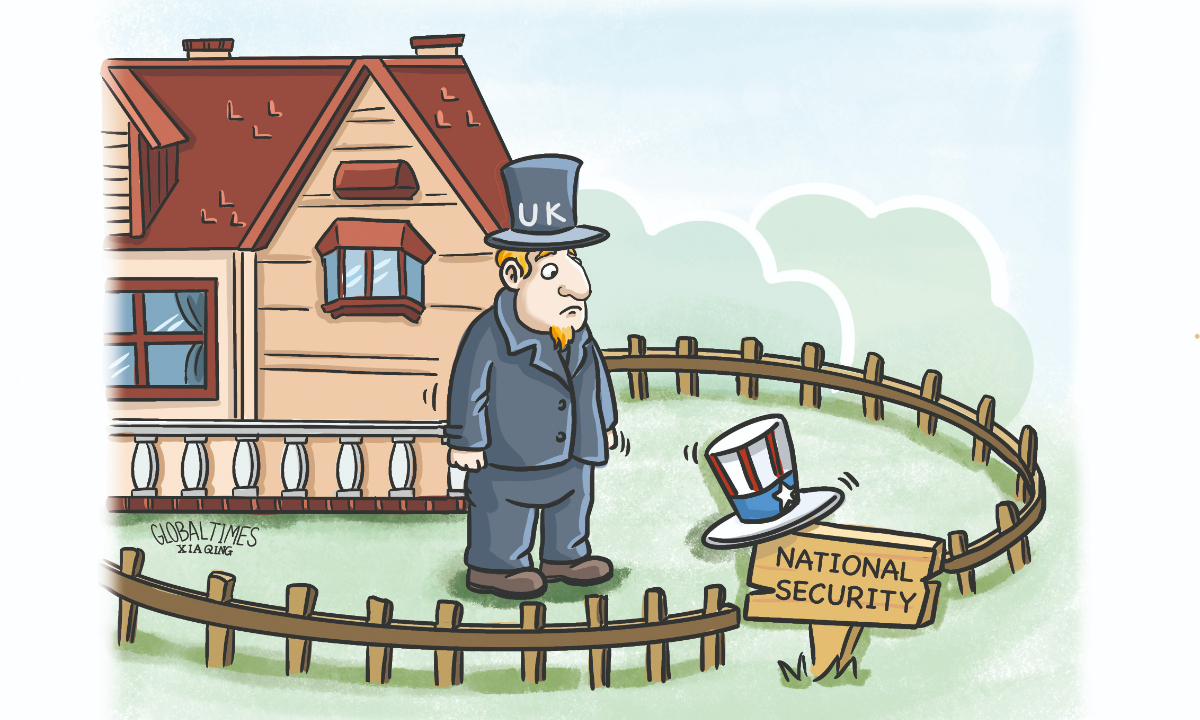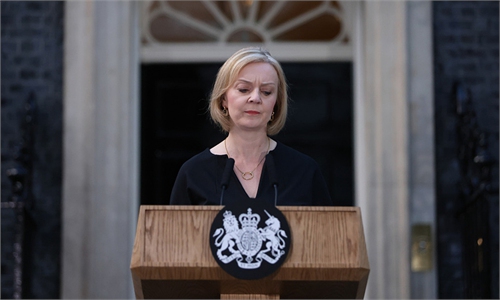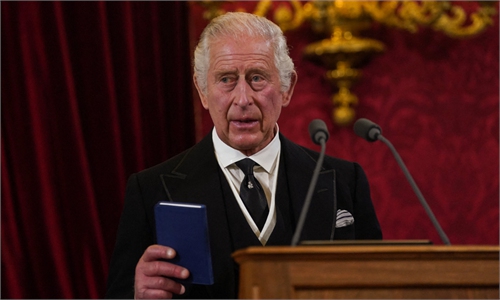
Illustration: Xia Qing/GT
Last week, amidst all the other news, it was announced that the British government had forced Chinese-owned Netherlands chipmaking firm, Nexperia, to divest 86 percent of its stake in the Newport Wafer Fab, a company which it had acquired long over a year ago. While the UK government called the takeover a "national security risk" following a review, the firm is now set to be given to an American company who coincidentally and conveniently had a "waiting bid" lined up.What is extraordinary about this takeover is that it had already been subject to such a review and approved over a year ago by the Boris Johnson government. The sudden announcement of a "new" review, which occurred this year, albeit which was delayed extensively due to political instability in the British government and revolving door change of leadership, constituted a U-turn. And of course, this U-turn had come amid pressure from a certain third-party country, who has a record of dictating which investments the UK can and cannot approve.
To put that in clearer terms: This is the second occasion in which the UK had approved a Chinese-associated investment on the grounds of national interest, but subsequently decides it is a "national security risk" months later and reverses course. This is foul play, and it runs completely contrary to the way in which a market economy professes itself to operate. As an old slogan touted by former prime minister Edward Heath in the 1970s quotes: "Who governs Britain?" - The slogan was targeted at unrest caused by trade unions within that decade, which disrupted the British economy.
Yet in this case, the question is applied to the US, who is infringing on British sovereignty regarding Britain's right to foreign investments. As was the case with Huawei in 5G, the British government's initial security review never found any problems. It was only after American pressure signaled anger at the decisions that such "risks" suddenly emerged. The Biden administration's policy is to strongarm advanced countries into blocking every single Chinese investment in the semiconductor sector, often utilizing extraterritorial jurisdiction to do so. The pattern is sporadic, with investments being vetoed in Italy, Germany and South Korea.
The strategic goal is obvious: the US wishes to dominate the semiconductor supply chain in its entirety and squeeze China out of it. Hence, it is investing billions into forcible reshoring. Of course, if the Newport Wafer Fab was of a high-node technology, such a veto on "national security" concerns might be convincing. However, it couldn't be further from this. The fabrication plant is not even vaguely competitive when it comes to semiconductors. The company manufactures 200nm wafer chips of which are described as being for household appliances such as toasters and calculators. It has no capability whatsoever to produce high-end, competitive, and military use chips often attributed to industry leaders such as TSMC.
The firm was so strategically important to the British government, before the takeover, that it was running at a loss, was left in considerable debt and, was being drip fed from subsidies by the regional Welsh administration. To put it bluntly, it was so uncompetitive that it was a failing enterprise, and that also speaks to how 40 years of British neoliberal economics have destroyed the country's industrial base in its entirety, which is ironic given they now claim to protect such in the name of beating back China. The Netherlands-based firm, Nexperia, had in fact invested to absolve the company's debt, and would have positioned the firm to become competitive by opening up to the world's largest semiconductor market: China.
This politically motivated and callous decision is self-defeating, costly and contrary to the rule of law. Britain needs external foreign investment in the face of its shrinking economy which the UK's Chancellor of the Exchequer Jeremy Hunt says "is already in recession," but we do not see a new and "global Britain" in lieu of Brexit, we see a "little Britain" which has become ever more subservient to the will of the US who is forcing them to pull up the drawbridge, while trade ministers naively continue to knock on the doors of Washington seeking a trade deal which the highly protectionist administration has zero-interest in assuming. It is little wonder with this attitude that Rishi Sunak's attempts to engage Beijing have been rightfully met with the scorn it deserves.
China invests, Britain accepts, Washington intervenes, and then Britain U-turns. How are you supposed to do business with a country like this? What kind of message does it send to the world?
The author is a political and historical relations analyst. opinion@globaltimes.com.cn



